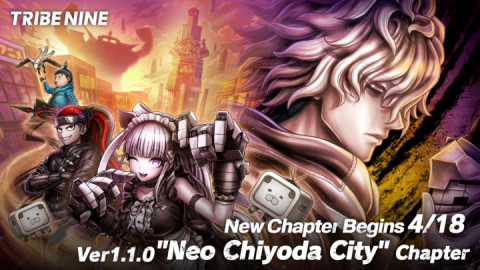
“Fnatic are going to win Worlds.”
When Bwipo and YoungBuck first said those words during August 2018, I sat there, wondering if I had somehow ended in a parallel universe where Western players somehow conjured the required degree of courage (or foolishness, depending on your perspective) to commit heresy.
History showed that heretics had a nudge of truth to them. After all, Galileo wasn’t wrong when he said Earth wasn’t the center of the universe; and he wasn’t the only scientist proven right eons after the rejection of their ideas. Still, League of Legends is no science, and it seemed to follow a core tenet: Korean teams win Worlds, and Chinese teams aren’t far behind.
Numbed by five years of Korean reign, I struggled to see where Fnatic’s outlandish belief originated, and what sense it made. Don’t get me wrong: even before they played their 2018 EU LCS summer split match against FC Schalke 04 Esports, they were undeniably the best Western team I had ever seen in the last five years, ever since the LCS era began. That made them better than: the 2015 Fnatic in their flexibility, the 2016 H2K Gaming in their bot lane centricity, and the 2017 Misfits Gaming in their willingness to be themselves.
However, European teams’ runs at Worlds left a bittersweet aftermath as they flowed through time, bringing more numbness in their wake. Pride was also a reagent they brought (especially in the one-sided Europe vs. North America conversation), but it never ended that way. Since 2012, Europe had always come close to reaching the finals, but no cigar. Since 2013, and until the 2018 World Championship, the region’s finest teams were incapable of contending for a Worlds finals spot.
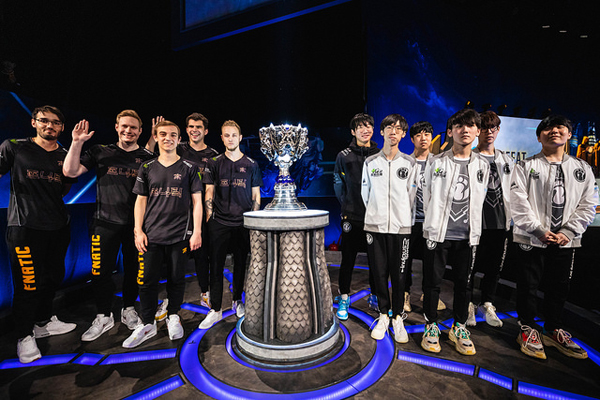
The fastest and slowest teams of 2012 tempo-wise, Moscow Five and Counter Logic Gaming Europe, had laid the foundations for what would become standard considerations in contemporary League of Legends gameplay: lane priority and counterjungling for Diamondprox’s camp, and scaling and team fighting for CLG EU. They were leaps and bounds better than the Fnatic squad that had won the Season 1 World Championship, an EU/NA centric tournament before League of Legends’ launch in China and South Korea. However, in the year the World Championship became worldly, they could not bring it home against Azubu Frost’s best-of-both-worlds gameplay, and the Taipei Assassins’ split-pushing madness.
Later on, short off missing Worlds, Fnatic emerged as a devastating crew in ‘unofficial World championship’ IGN ProLeague 5 as then 16-year-old rookie Rekkles became an overnight sensation after running circles around his competition on the way to a close but no cigar finals showing against China’s Team WE, then the best team in the world as they combined amazing individual play, split-pushing, counterjungling and team fighting in one. Still, the European team had risen where M5 and CLG.eu failed: beating the Taipei Assassins, then world champions — and they did it twice.
Fnatic would wait one year before fielding Rekkles on their lineup as he was not of age for the LCS, but they still reached the semifinals of the 2013 World Championship and fell to Royal Club Huang Zu. Thoughts of ‘what could have been’ loomed around; what if there was no age restriction on professional League of Legends players in the LCS? How badly would Rekkles smash the competition in Europe, before taking on Uzi circa 2013? Would Europe come close, but not quite, to reaching the elusive finals? Or would it come closer? Or would it be SK Telecom T1’s plaything in the round that followed?
The questions found their collective answer in 2014: probably not. Europe had a terrible, forgettable and — quite honestly — traumatic year, with none of its representatives going past the group stage. Alliance’s arrogance got them close, but not quite, to passing through the group stage; and I still remember lamenting the Kayle pick in the top lane. Fnatic were a few auto attacks on a nexus close, but not quite, to qualifying over China’s OMG. As for SK Gaming, they never came close, a suspension on their starting jungler Dennis “Svenskeren” Johnsen dooming them before they started.
The resulting offseason circus was one for the ages with squads changing left, right and center. In came a new-look Fnatic with only YellOwStaR (and Rekkles later returning from a pilgrimage to Elements), and Origen (or Fnatic.Black, depending on who you ask in the fan base at the time) with four vets and Zven. However, when they returned to the semifinals, it was pretty clear that it was yet another year of “close, but not quite.” 2016 proved no different with H2K Gaming’s best effort staggering before the finish line.
Up until then, the gold standard was Korean League of Legends with SK Telecom T1, Samsung Galaxy and KOO (ROX) Tigers posing as poster boys of macro play and controlling team fights. Chinese League of Legends lagged, but not as significantly behind as Europe and North America, because they had their all-out brawling identity and their own crutches. Royal relied on Uzi to do the heavy lifting, but they were uniquely equipped to execute it; it was their style. Europe’s legacy wasn’t just “close, but no cigar”: the region’s representatives tried too hard to mimic what they saw in other regions.
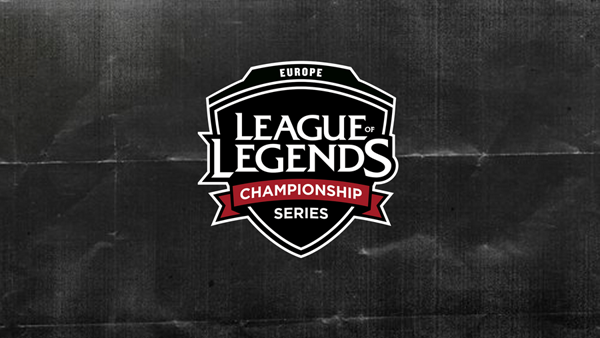
That changed with Misfits Gaming in 2017; the European team did strike yet another “close, but no cigar” finish when they bowed down in the quarterfinals, but it was much different from the 0:3 exits of old. For the first time, Europe (and I) celebrated an exit for what it was: a resounding message sent to the world. Misfits Gaming (and Europe) danced to the beat of their own drum, and they were 150hp and an Elder Dragon away from eliminating the most storied Korean team in League of Legends, SK Telecom T1.
Misfits owned up to their strengths, acknowledged their weaknesses, and circumvented the meta accordingly, bending it to their will in the process. IgNar’s strengths were best utilized on engage-heavy and roaming champions, such as Thresh, Leona and Blitzcrank, none of which carried Ardent Censer. To circumvent that, Misfits utilized meta picks (such as Karma and Orianna) as Ardent carriers, but they also looked at unorthodox picks such as Ivern more intently than everyone else: as long as it has a shield, it can carry Ardent Censer, right?
Misfits’s legacy echoes through European League of Legends since then. Just ask Team Vitality’s head coach, Jakob “YamatoCannon” Mebdi, whose team set the tone for Europe’s 2018 party at Worlds as they effectively knocked out Gen.G (then reigning World Champions). Heck, ask Cloud9 how they qualified to the semifinals, and you’d hear Tristan “Zeyzal” Stidam praising Vitality (and Misfits by proxy).European attendants Vitality, G2 Esports and Fnatic owned up to their identities, and they smashed their competition (or sent a huge message in the process): the best version of yourself is better than a lesser version of someone else. If we wanted to copy how Koreans play, let’s just consider the LCK as the true World Championship, and take away any significance in holding a “World Championship” where Korea sweeps its competition.
Vitality’s bloodlust inspired Cloud9 to do the same, and Cloud9 took that all the way to the semifinals, beating Afreeca Freecs before bowing down to a more flexible Fnatic squad. Meanwhile, G2 Esports surprised everyone (me included) when they went from a nearly irrelevant squad down for the count in the EU LCS summer split quarterfinals to an irreverent split-pushing monster with strong laning, annihilating Flash Wolves and, more importantly, Royal Never Give Up: yes, the same Royal that demolished everything on its path all year long until then.
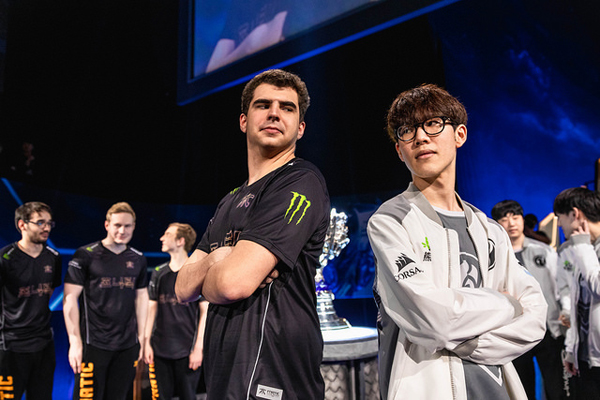
Then comes Fnatic, now World Championship finalists, facing a squad they beat twice in Group D, Invictus Gaming, and on the verge of the biggest breakthrough for Western League of Legends, on the eve of franchising in Europe, following the EU LCS’s best year ever viewership-wise.
I didn’t need to ask YoungBuck what made him think, back then, that Fnatic would win Worlds, and I didn’t need to ask Bwipo about it when I saw the look on his face: locked in, ready to tear opponents to shreds. When Bwipo spoke later on, I got the confirmation that YoungBuck was dead serious – and that this team would win Worlds or die trying: they were still lamenting their narrow losses to Royal at MSI; after all, they could have swept them with more discipline, more practice, more ‘anything’ — as Bwipo said.
I don’t need to ask them now what they’re thinking, since they’ve been on this war path for a month. Even then, Rekkles’s stone-faced look when he faced Invictus Gaming said it all: he won’t lose another final. He already lost once to a Chinese team at IPL5 in what was to be Europe’s crowning moment, and he won’t lose again. Not with this crew. Should they fall, it will not be for lack of heart or skill.
Mark my words: Fnatic will win Worlds, one way or another.
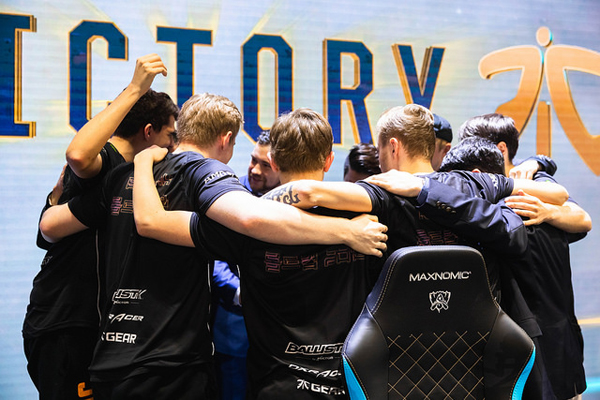
(Photos credit by LoLesports)
Disclaimer : The following article was written freely based on the author's opinion, and it may not necessarily represent Inven Global's editorial stance.
Sort by:
Comments :0



